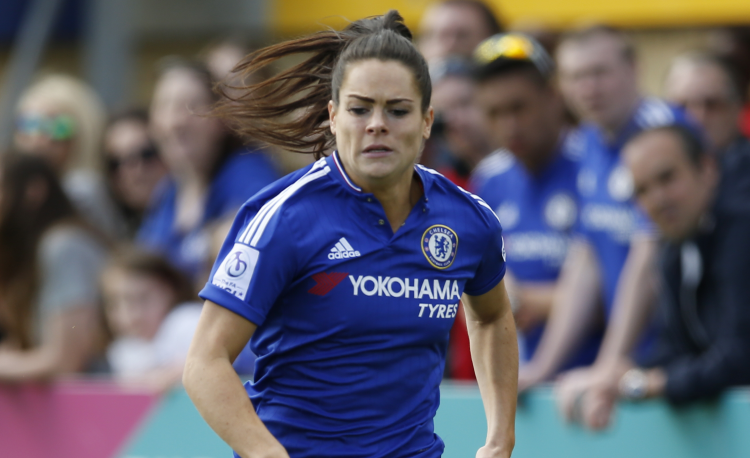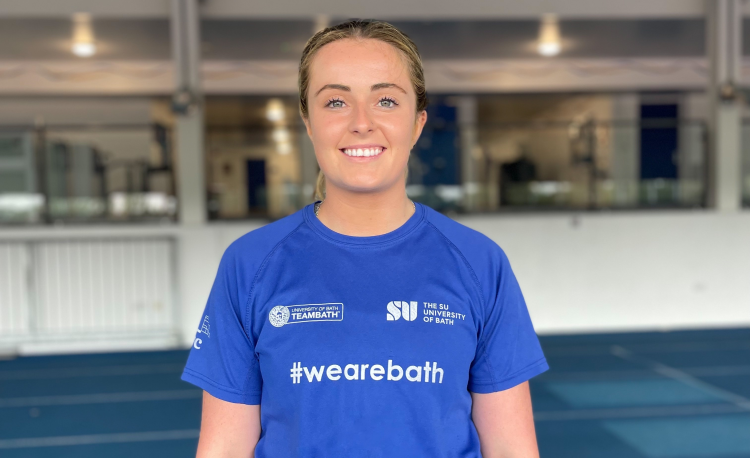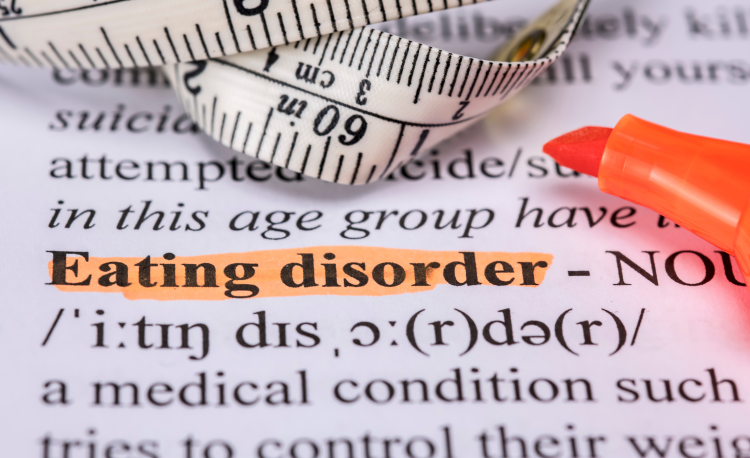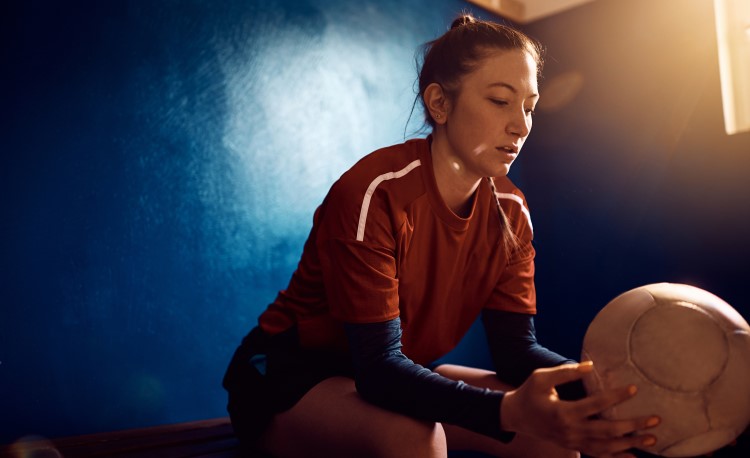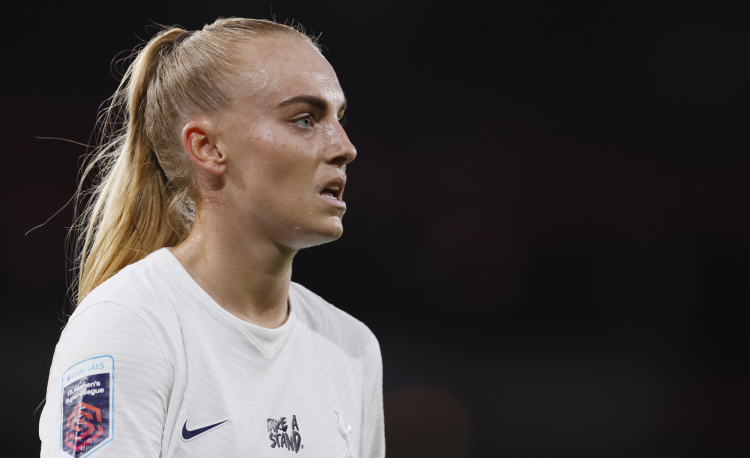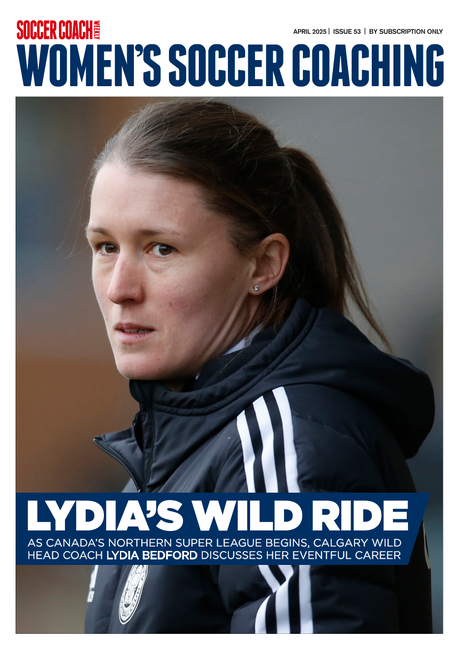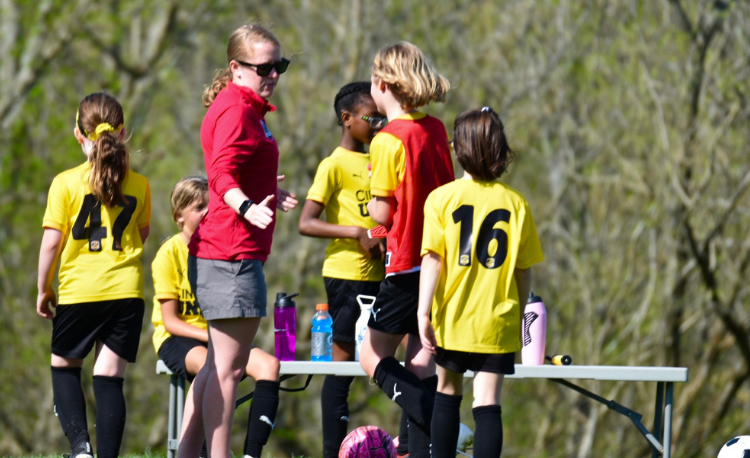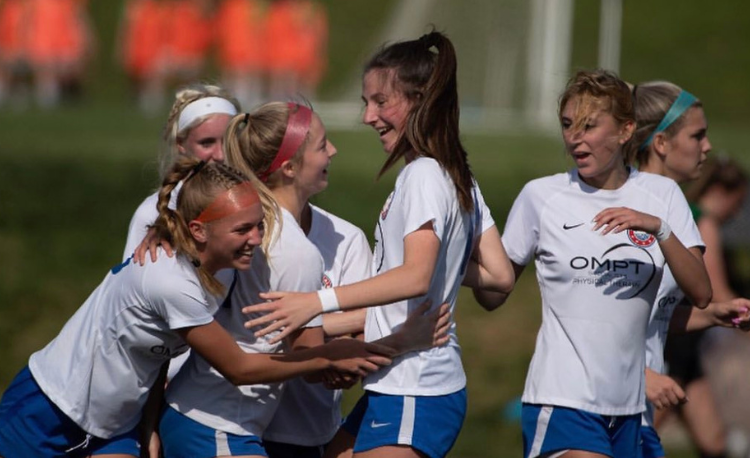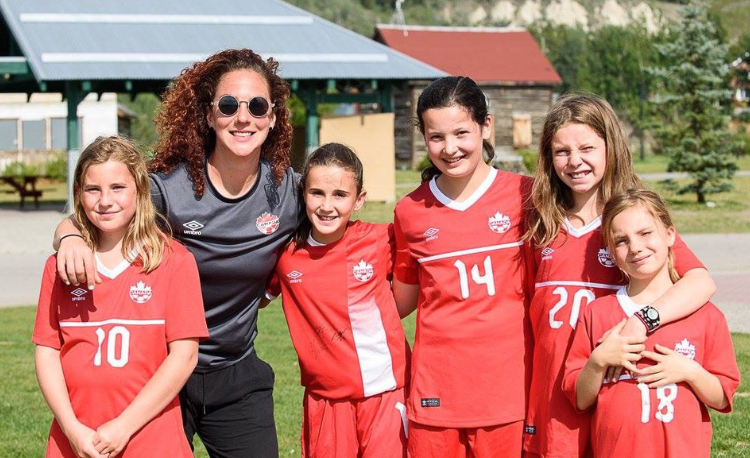You are viewing
1 of your 3 free articles
Eating disorders and elite female athletes
’One in three elite athletes’ have an eating disorder. That’s the alarming stat one study of sportswomen showed. Riley Nickols, an expert in this area, tells Hannah Duncan how coaches can be supportive.
While awareness of mental health has undoubtedly improved in recent times, disordered eating is something coaches, especially at grassroots levels, may not consider when thinking of factors that can impact players’ performance.
WSC spoke to Riley Nickols - founder of the Mind Body Endurance network of sports psychologists and athlete mental-health practitioners - about disordered eating, its impact on athletes and their team-mates, and how coaches can spot the signs...
WSC: What insight can you give us into eating disorders in soccer, particularly among female players?
RN: A 2008 study showed the prevalence rate of eating disorders to be as high as 33% for elite female athletes.
Eating disorders have biopsychosocial underpinnings, whereby genetics, temperament and environment are all influential in the onset, or intensification, of an eating disorder.
Although there are many aspects of sport that can be protective to an athlete’s mental health, there are also components that can increase an athlete’s vulnerability to disordered eating or an eating disorder, such as pressures associated with sport and athletic clothing attire.
WSC: How can an eating disorder affect a soccer player, physically and mentally?
RN: An eating disorder can have far-reaching implications on a soccer player’s body and brain.
In addition to bone health complications, an athlete’s cardiovascular, metabolic, endocrine, gastrointestinal and immunological functioning can be impaired as a result of an eating disorder.
Psychologically, an athlete with an eating disorder often experiences an increased mood disturbance - like depression or anxiety - in addition to concentration and focus difficulties and perseverative thoughts specific to food, one’s body, and/or exercise.
WSC: What can coaches of female players do to support them in this area?
RN: Coaches hold significant power and influence in the lives of athletes. It is important for coaches to understand they either permit a team culture whereby eating disorders are promoted or prevented – there is no middle ground in this area.
Unless previously disclosed by an athlete or staff member, it is not possible for coaches to definitively know whether or not someone has an eating disorder or a vulnerability to develop disordered eating or an eating disorder.
As such, great care needs to be given by coaches to remain in their area of expertise. Unless a coach is also a registered sports dietitian or physician, it is not appropriate to give specific nutritional, body composition or weight guidance to athletes.
Although often well-intentioned, veering outside our lanes of expertise is often misguided, risky and dangerous to an athlete’s wellbeing and health.
Riley’s eight telltale signs coaches can look for if they suspect one of their players is battling an eating disorder
Although not an exhaustive list, here are some things that might indicate an athlete is struggling with an eating disorder...
- Excessive training, exceeding coaches’ recommendations
- Poor body image, preoccupation on weight and shape
- Body checking, inspection, critical self-evaluation
- Changes in body shape, weight, mood
- Inability to take rest days without feeling guilty
- Isolation from team-mates
- Performance decrements in sport and/or school
- Rigid food rules, eating beliefs, and/or rituals around eating
WSC: How can a coach sensitively approach this topic with a player?
RN: It is recommended that a coach privately express concerns to an athlete in a manner that communicates concern, but also compassion.
A coach can communicate noticeable emotional and behavioral changes they have observed from the athlete while avoiding labels - don’t say, for example, "I think you have an eating disorder".
Additionally, coaches can be reminded that an eating disorder is a psychiatric illness and, as such, over-simplified solutions to restore health can unintentionally feel dismissive and invalidating to an athlete.
WSC: As you have suggested there, the language we use with players in this area is very important. What advice can you give to coaches on the phrases to avoid to not put pressure on their players to feel they need to look a certain way?
RN: Language is incredibly important. Coaches want athletes to optimize performance and “looking a certain way” is not performance enhancing in ways that might be perceived.
Coaches who have knowledge and sensitivity in this area often use language that is free of judgment, while neutralizing comments specifically about food, weight and body composition.
Language that is supportive and encourages athletes to leverage available support when needed - from a mental health professional, sports dietitian or physician - is most advantageous to support an athlete’s mental and physical health.
WSC: How can a coach effectively support a player who is suffering with an eating disorder?
RN: It is of utmost importance that coaches support the recommendations of the athlete’s multidisciplinary treatment team - mental health provider, physician, dietitian.
It must be specific to modifications to an athlete’s training and sport participation, as these modifications are frequently needed to support treatment targets that are intended to restore an athlete’s health.
Athletes often find it helpful when coaches ask how they can be supportive during an eating disorder and corresponding treatment.
"Coaches who have knowledge in this area use language that is free of judgement..."
This type of communication will allow a coach to best understand how they can respond in a manner that is attuned to an athlete’s needs, similar to when an athlete has a physical injury.
WSC: How can coaches support a struggling player’s team-mates? And, in turn, how can they help those team-mates support the player in question?
RN: There are aspects of an athlete’s eating disorder treatment that are confidential and coaches may or may not be privy to this information.
Respecting an athlete’s confidentiality is critical. As such, it is advised that coaches defer to the athlete as to what information, if any, they feel comfortable being shared with the team.
Additionally, coaches can reassure an athlete’s team-mates that the athlete is receiving care from qualified providers and encourage them to ask the athlete directly as to how they can be supportive.
WSC: Where can coaches go to gain more understanding of eating disorders?
RN: The [US-based] National Eating Disorders Association and Project RED-S are good resources for coaches.
There are good books, too, such as. Finding Your Sweet Spot: How to Avoid RED-S By Optimizing Your Energy Balance, by Becca McConville, and Treating Athletes with Eating Disorders by Kate Bennett.
Additionally, we at Mind Body Endurance are excited to virtually host our annual Eating Disorders in Sport: A Treatment Playbook for Providers on July 21, offering training for coaches and athletic personnel to enhance the identification and treatment of athletes with eating disorders.
WSC: Where can coaches signpost players for more support in this area?
RN: Coaches should be aware of appropriate resources and referrals to qualified eating-disorder providers in-house, such as within a college athletic department, locally, virtually and nationally.
Our Mind Body Endurance team is happy to provide care or help connect athletes with qualified providers.
Related Files
Newsletter Sign Up
Newsletter Sign Up
Discover the simple way to become a more effective, more successful soccer coach
In a recent survey 89% of subscribers said Women's Soccer Coaching makes them more confident, 91% said Women's Soccer Coaching makes them a more effective coach and 93% said Women's Soccer Coaching makes them more inspired.
*includes 3 coaching manuals
Get Inspired
All the latest techniques and approaches
Women's Soccer Coaching offers proven and easy to use soccer drills, coaching sessions, practice plans, small-sided games, warm-ups, training tips and advice.
We've been at the cutting edge of soccer coaching since we launched Soccer Coach Weekly in 2007, creating resources for the grassroots youth coach, following best practice from around the world and insights from the professional game.
